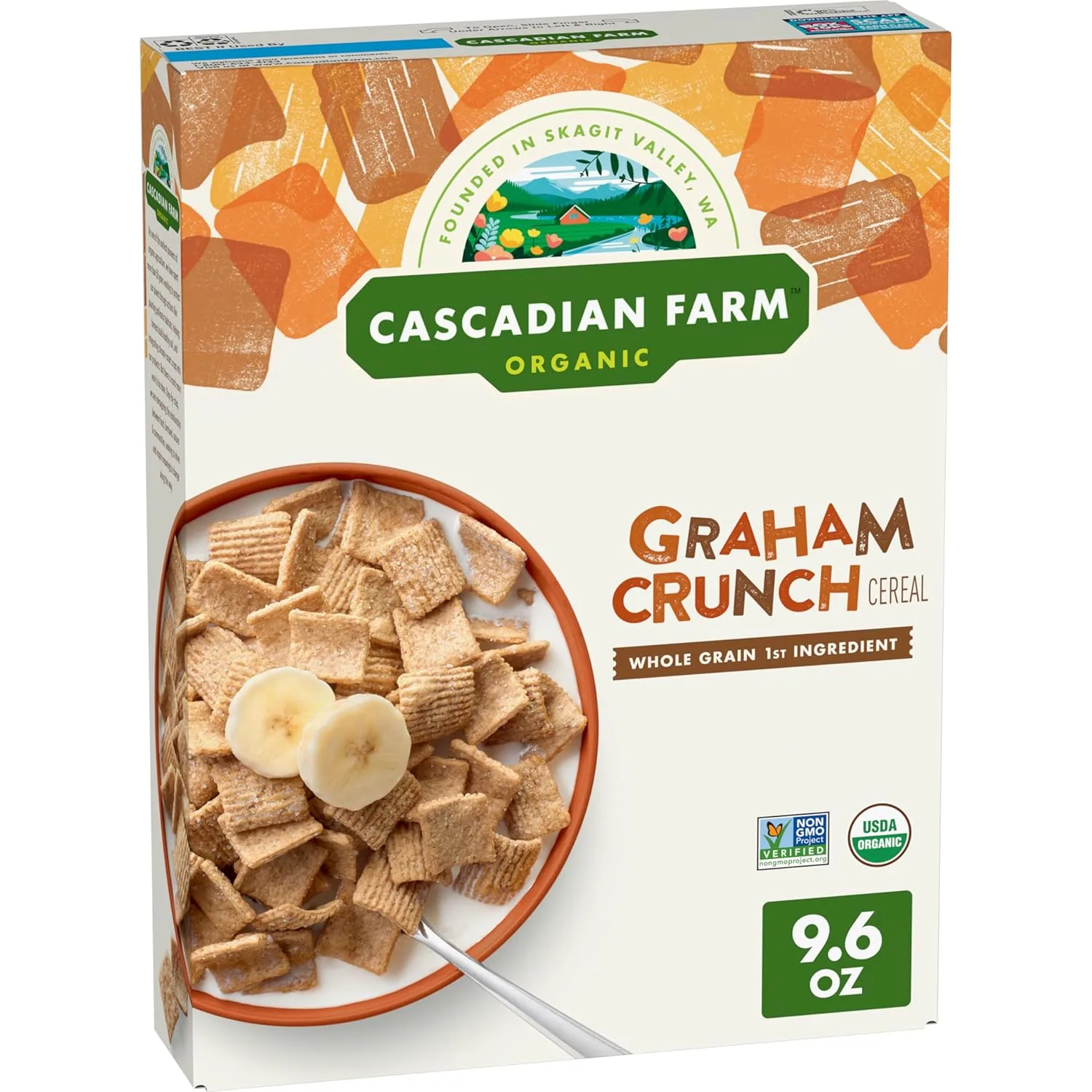Cascadian Farm Organic Graham Crunch Cereal
food & drinks • For 1-2 year old toddlers • Consumable 🍝
Product Images
Product Photo

Tap to enlarge
Ingredient List

Tap to enlarge
Is this toddler-safe to eat Cascadian Farm Organic Graham Crunch Cereal?
Check for Different Age (6 available)
Ingredients Analysis (9 found)








Common Questions About Cascadian Farm Organic Graham Crunch Cereal
Toddler-friendly? Cascadian Farm Organic Graham Crunch Cereal
Use caution with Cascadian Farm Organic Graham Crunch Cereal for 1-2 year old toddlers. Some ingredients may pose concerns.
What ingredients should I watch out for?
We analyzed 9 ingredients in Cascadian Farm Organic Graham Crunch Cereal. 1 caution. Check the detailed analysis above for specific concerns.
When can toddlers eating food & drinks?
The appropriate age depends on the specific ingredients. This analysis is for 1-2 year old toddlers. Use the age selector above to check other ages.
⚠️ Important Disclaimers
Product Recognition: Product names are identified programatically and may be incorrect. Always verify product identity yourself.
Safety Analysis: Evaluations are for research only - consult pediatricians for medical decisions. Do not rely solely on this analysis.
No Guarantees: Results may be incomplete or inaccurate. Do not rely solely on this analysis.